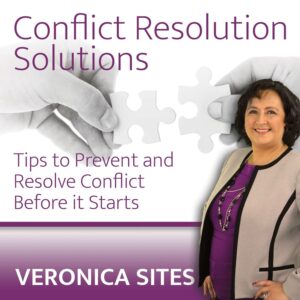 By Veronica Sites
By Veronica Sites
Has a pandemic and exhausting election year got you stressed or fatigued?
In early spring it was called Zoom fatigue, today some have coined the term post-election fatigue. The common denominator is weariness and perhaps varying levels of fatigue that, if we take time to consider outcomes, we may just do things a little differently with a lot of benefits.
Small seemingly insignificant actions on a daily basis have an amazing compound effect with great dividends in our own mental health. Does it take work? Yes, anything with lasting value does, a better question to ask yourself – is my health worth compromising? The not so seemingly insignificant things that have been accumulating in 2020 have an impact too; pandemic shut down, a nasty election, and inconsistent progress in getting beyond COVID’s interruption to life as we knew it this time last year. So what, now?
It is common that tension can run slightly higher leading into holidays. Perfectionism, a list to be conquered, and a desire to please others lurk beneath our own expectation of how we think something, someone, or some event should be. The demand for unreasonable expectations can easily knock anyone off the balance we seek; Peace on Earth.
Before you hustle further down candy cane lane, here are some sanity tips for the season.
These are found in the last book I published just before the election of 2016. The tips have made a huge difference in the lives of those that put simple daily tips into action to develop skills we all need in navigating conflict. Simplicity works wonders! Your peace is worth the daily investment that produces well kept mental health.
Before I give the tips let me introduce a current possibility for some people and a real risk that can occur in relationships when conversations lead straight into conflict.
Moral Injury
A moral injury can occur in response to acting, surviving, or witnessing behaviors that go against an individual’s values and moral beliefs. This is a huge trigger as we consider this year’s election. Hurt to the soul of a man creates potentially injurious words compressed within very strong behaviors fighting what emotions are churning inside and unseen by others.
Moral injury occurs when an individual feels an impact in mind, body, and or soul like a transgression occurred and that they or someone else crossed a line with respect to their moral beliefs. Injustice, lies, infidelity, and many other human behaviors can cause a moral injury. I refer to this as an assault on a soul’s convictions. It is evident that today we have a continued open wound in our nation and the fact is that hurt people inevitably tend to hurt other people until a single individual chooses to take action and purpose personal behavior toward personal health and wellness. To do that we have to value ourselves and others.
So before launching into the next family gathering armed with an attitude to take on uncle John with a victory speech about why everyone should be happy, consider the person first. Does Uncle John matter to you? Is that relationship of value enough to be willing to listen as if there may be a different perspective than is currently held? If uncle John is estranged or no longer in your life is there someone else will you have a heated conversation with? It could be that the blame target is not a problem. It could be unresolved hurt for years and conversation gone by that never even happened with uncle John, he may just happen to do something familiar that makes him a target of antagonizing conversation. Prioritize the person over the problem.
10 Tips to Avoid Holiday Hiccups
Webster defines conflict as a strong disagreement between people, groups, etc., that results in often angry arguments: a difference that prevents agreement: disagreement between ideas, feelings, etc. Conflict happens the very instant a single expectation is unmet. It can be with others or personal inner conflict. Inner conflict takes place when we go against convictions, ethics, character, and counter to our personal values, and fall short of what we expect of ourselves. Are you conflicted about anything internally? If so, it will find its way out externally. Are you ready to maintain good relationships?
 Prepare
Prepare
- Prepare to avoid conflict. Know what the conflict or hot topic that could lead to conflict is.
- Know the conflict’s dynamic. When an expectation is not met, responsive opinions form that may be either spoken or internalized and left unspoken or suppressed. These thoughts, feelings, or emotions lead to either actions or reactions. Reactions are fueled by emotions. Responses are planned actions intended to lead to specific results. Think of a first responder. He plans, prepares, and responds at the right time. This is a guide to help you do the same.
- Know the target. Target results before tongues tangle in turmoil. It is easy to target a person and miss the root of the problem is behavior, attitude, or unmet expectation. Target the behavior and minimize the risk of generalities that can be internalized and break a spirit and result in invisible wounds or moral injury.
- Take responsibility. Determine how you want to resume interaction following the potential conflict. Do you want continued tension or a peaceable resolve? You alone determine the course a conversation takes and the destination at which you arrive: peace or chaos. Your actions will follow the lead of your mindset and plan. The tendency is that what you model negatively will be doubled by those around you. What you do positively will be carried out only half as much as it was modeled.
- Admit. Conflict may involve multiple people, yet there is one responsible party. Note that I did not say there is only one person responsible. Each individual person is responsible for controlling his thoughts, words, and actions. Admitting this can change the course of your conversation as much as it is within you to navigate around potential conflict.
- Be realistic. Conflict is inevitable; how you handle it is completely up to you. You can only manage yourself. Do it in such a way that you can sleep peacefully at the end of the day. Know that you did what you could to communicate in a manner that you alone exercised control with intent to resolve rather than escalate a conversation. Whether it came about or not is not solely up to you. Take control of yourself and you sleep more peacefully. When you know you have done all you can to guide a conversation toward resolve, you must release control.
- Recognize limitations. It is not within you to change someone else’s thoughts, feelings, or the receptivity of the words exchanged in a conversation. It is very important to choose words that align with what is meant and what you mean the other person to understand what you said. Words have meaning; speak with care and precision. No one likes to be misunderstood and everyone wants to be heard.
- Respect differences. In communication, individual personalities listen and communicate with major differences. By default, this puts individuals at an advantage or disadvantage in entering a difficult conversation. Personality differences impact how many words are used to communicate a thought and how a person processes information received. Compound this with varied listening skills and you have a perspective that inevitably misses the mark of expecting differences. Some people use minimal words while others have verbal diarrhea when it comes to unloading information. This can be exhausting. Do you know your verbal listening style? Consider work in these areas.
- Manage conflict. Conflict can be managed. In many cases, conflict is deterred or escalation minimized with an advanced, predetermined, desired result. With determination and planning, personal boundaries go a long way when it comes to inner peace. A prepared person acts according to the desired result. An unprepared person reacts and the conversation gets out of control. Emotions make bad choices. What is your desired result – chaos or self-control?
- Set boundaries. Determine boundaries for yourself concerning words and emotions. Will you choose to continue a conversation that triggers emotionally driven words? Or, will you choose (in advance) that at any point of personal escalation you will take a deep breath, choose to intently listen, and communicate before you will resume your part of the conversation so that you will have time to calm down? No one likes the thought of being on a highway with a drunk driver. They are all over the place without any consideration of others on the road. Pick the lane your conversation will operate from and drive your speech accordingly. You cannot control the words others choose. Stay in your lane, and arrive at your desired destination safely.
These and many others are found in Conflict Resolution Solutions 57 Tips to Stop Conflict Before It Starts. We know those we love and value but may sometimes end up in conflict all too often. This makes a great stocking stuffer that I give with a note that says something like this: “I care about our relationship and I got myself one of these and thought of how much I love you more than arguments that sometimes leave one of both of us hurt. Please receive this as my investment in a valued relationship more important to me more than winning an argument. A continued relationship always wins!”

For more information on Building Winning Relationships, Life Coaching, or Suicide Prevention Peer Support schedule a 30-minute complimentary consultation. Check out my NEW book and share with a friend. We do not always know who someone is conflicted.

Leave a Reply